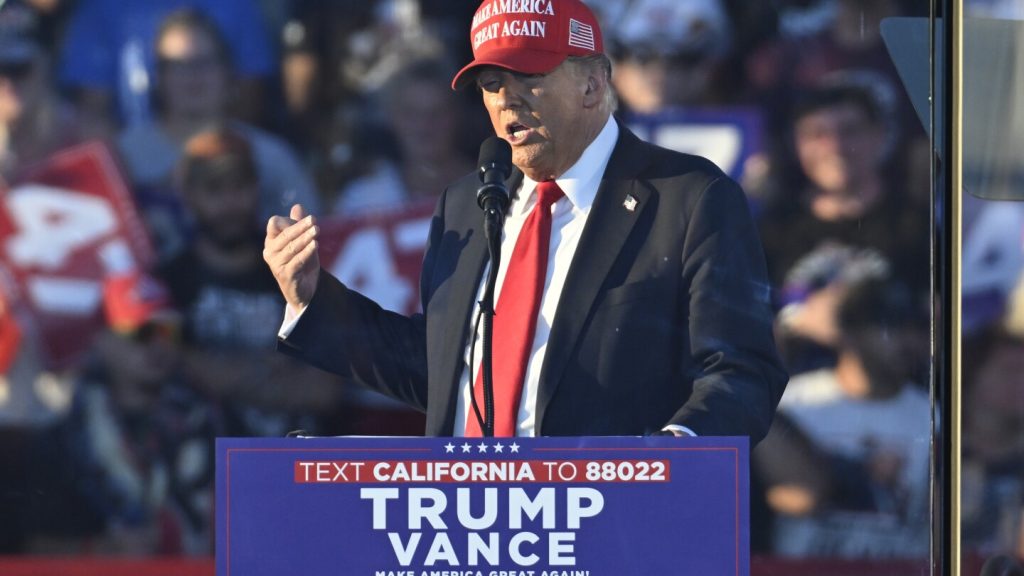Former President Donald Trump has once again come under fire for his use of violent language towards protesters at his rallies. At a recent event in Coachella, California, Trump called for a protester to “go back home to Mommy” to “get the hell knocked out of her.” As the crowd jeered, Trump continued to mock the protester and her mother, before returning to his speech. This incident is just the latest example of Trump using violent language when confronted by demonstrators during his rallies.
This is not the first time Trump has used violent language towards protesters. During his 2016 campaign, he urged his crowds to “knock the crap” out of protesters and expressed a desire to physically harm them. Despite facing criticism for his rhetoric, Trump has continued to use inflammatory language towards those who oppose him. The protester at the Coachella rally was ejected from the event, but it is unclear what happened to her afterwards.
Trump’s use of violent language towards protesters has raised concerns about the impact of his rhetoric on his supporters. Critics argue that such language is dangerous and could incite violence against individuals who express dissenting views. Trump’s supporters, however, defend his approach, claiming that he is merely standing up for himself in the face of opposition. The divide over Trump’s use of violent language reflects broader tensions in American society over free speech and the right to protest.
Despite facing backlash for his controversial remarks, Trump has remained unapologetic and defiant in his rhetoric. He continues to use inflammatory language towards protesters and critics, often escalating situations rather than seeking to defuse them. This approach has led to clashes at his rallies and further polarized his supporters and detractors. As Trump’s influence in the political landscape remains strong, his use of violent language is likely to continue to be a point of contention.
The incident at the Coachella rally highlights the ongoing debate over the limits of free speech and the responsibilities of public figures like Trump. While some argue that Trump’s use of violent language is protected by the First Amendment, others contend that such rhetoric has real-world consequences and can contribute to a toxic political atmosphere. As the 2024 presidential election looms, the question of how to address and respond to inflammatory language from political leaders like Trump remains a pressing issue for American society.
As Trump’s political future remains uncertain, his use of violent language towards protesters continues to provoke strong reactions from both his supporters and detractors. The incident at the Coachella rally serves as a reminder of the divisive impact of Trump’s rhetoric and the challenges it poses to the principles of free speech and civil discourse. As the nation grapples with these tensions, the legacy of Trump’s presidency and his approach to handling dissent will continue to shape the political landscape for years to come.


